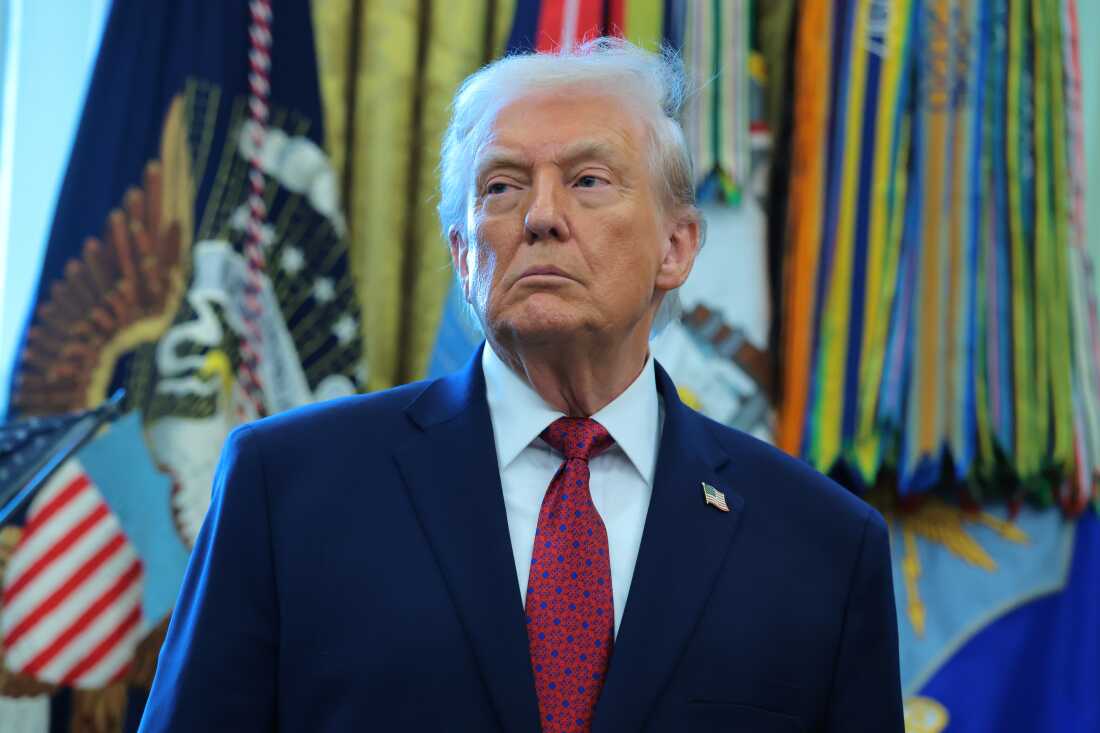Unlock the Editor’s Digest at no cost
Roula Khalaf, Editor of the FT, selects her favorite tales on this weekly e-newsletter.
Brazil has reached an deadlock with the US over the file tariffs it has imposed on the South American nation, its finance minister Fernando Haddad has stated, insisting an answer relies upon extra on Washington’s willingness to resolve the problem.
The US imposed 50 per cent tariffs on most Brazilian exports after President Donald Trump accused the nation of conducting a “witch-hunt” towards his ally, far-right former president Jair Bolsonaro, and demanded his supreme courtroom trial be halted.
“The US is trying to impose on Brazil a solution which is constitutionally impossible,” Haddad stated in an interview at an FT Dwell-Occasions Brasil/CNBC convention in São Paulo. “An impasse has been reached, it’s a request which cannot be fulfilled.”
Haddad famous that below Brazil’s structure, the supreme courtroom is impartial of the federal government.
The minister had scheduled a digital assembly with US Treasury secretary Scott Bessent final week to debate the tariffs however Washington cancelled the decision. The Treasury division declined to remark.
Shortly afterwards Bessent appeared in {a photograph} posted on social media with Eduardo Bolsonaro, the previous president’s son. The Brazilian lawmaker has been lobbying for months in Washington for sanctions towards the judges making an attempt his father on prices of organising a military-backed coup in January 2023.
“We knew that the [Brazilian] far-right might mobilise in the US,” Haddad stated of his failed digital assembly with Bessent.
Requested about how the deadlock could possibly be resolved, Haddad stated: “To have a channel [for dialogue], you need an opening on this side and an opening on the other side. The one on this side is open . . . it depends more on the other side than on our side.”
Luiz Inácio Lula da Silva, Brazil’s leftwing president, has been posting nationalistic movies and rejecting what he calls “unacceptable interference” in Brazil’s sovereignty because the US introduced the tariffs. His recognition has risen because the confrontation started, however enterprise leaders are anxious for the federal government to have interaction with the White Home.
A ballot printed by the Folha de São Paulo newspaper final weekend confirmed 35 per cent of respondents blamed Lula for the dispute, with 22 per cent blaming Jair Bolsonaro and 17 per cent his son Eduardo. Simply 15 per cent blamed the choose overseeing the case, Alexandre de Moraes.
“What President Lula has been saying is this: ‘I don’t feel any willingness to talk on [the part of] the other side,’” Haddad stated. “Whether you like Lula or not, he is possibly the head of state who knows the most people in the world. He talks to everyone.”
Requested how Brazil may diversify its commerce relations amid rising US protectionism, Haddad stated he believed the EU and the South American Mercosur bloc would quickly finalise a long-awaited landmark commerce deal.
“By the end of the year, I believe it will be possible,” stated the politician charged with overseeing Latin America’s largest financial system.
The EU and Mercosur, which incorporates Argentina, Brazil, Paraguay and Uruguay with Bolivia within the technique of coming into the bloc, concluded talks on the finish of final 12 months on the blockbuster commerce deal, which might create a market of 700mn individuals.
Nonetheless, it should nonetheless overcome resistance to the pact from France and different nations, that are fearful concerning the impression on European farmers, and procure remaining approval from the EU’s 27 member states.
Haddad stated Lula had spent as a lot time coping with his French counterpart Emmanuel Macron as with fellow members of the Brics group of growing nations, of which Brazil is a founding member.
“President Lula manages the Brics [relationships] as much as he does the European Union agreement,” stated Haddad.
“[He] has been much more vocal with Macron — much more so. The president has been talking to Macron almost quarterly for two years.”




